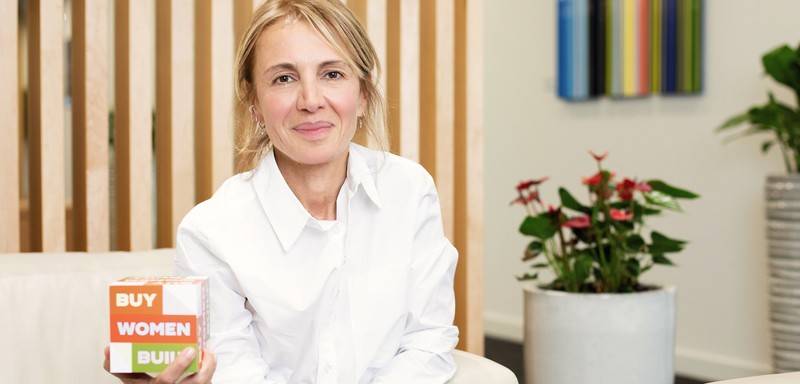
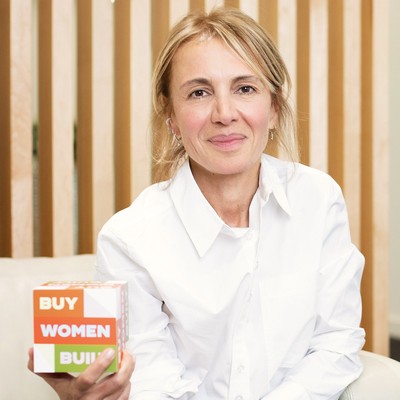
Life Lessons… With Sahar Hashemi OBE
On Entrepreneurship…
No one used the word ‘entrepreneur’ when I was growing up, so I can’t say that I always harboured aspirations to be one. Back then, no one knew who Richard Branson was. People who started their own businesses were thought of as whacky types or school dropouts. I also came from a family where qualifications and professions were lauded, which is why I decided to train as a lawyer and my brother became a banker. Lots of my friends were accountants – in fact, I didn’t know anyone who described themselves as an entrepreneur.
Things changed for me when my father died. I’d been a solicitor for five years by that point, but his death made me realise I wasn’t 100% happy doing that. Nor was I very good at it – one thing I’ve learnt is that the two often go together. I went to New York and discovered these American-style coffee bars and fell in love with the concept. It’s hard to explain to young people now but, before this, there was no such thing as takeaway coffee bars in the UK. When I told my brother Bobby how much I wished they existed in London, he told me it was a great business idea – and that was our lightbulb moment and the seeds of entrepreneurship started to grow. For me, being an entrepreneur isn’t something you’re born with or destined to be. It snuck up on me in many ways, and I’m so glad it did.
On Business…
Bobby and I spent most of our time building and running Coffee Republic from my mother’s kitchen table and, suddenly, we were offered the chance to reverse into this company on London’s junior stock exchange and take it public. It was a real culture shock – overnight we needed a proper finance director and to move to real offices. The pressure to grow also comes with being a publicly traded company and what I’ve learnt and written about at length in my books is that, when this happens, you have to work really hard at maintaining what was special about that business. Never lose sight of the DNA or USP. Sadly, that’s not what really happened at Coffee Republic. Within five years, we went from zero to 110 stores – but we were young and it taught me a lot about maintaining company culture. In the end, as founders, I realised we’d been outgrown by our own team who were all more qualified. This wasn’t a start-up anymore, it was a big company and, while it was a very difficult decision, I knew it was time to move on.
On Work/Life Balance…
One of my biggest learnings across the years is that life isn’t just about making money – no one is a coin machine at their core. The problem is, technology has completely broached the boundary between home life and office life – in the past, work was reserved for the office and your personal life started when you left at the end of the day. Life doesn’t work that way anymore. Anyone is contactable at any time of day, though some bosses are better at respecting people’s boundaries and personal lives than others. And then, some people think they have to make work their life and they’re bad at carving out a division.
I don’t think there’s a solution for this and there’s no real opportunity to row back – technology is only moving in one direction. The difference, I think, is to find purpose in your work. That will make the blurring of boundaries feel more acceptable to you. If you really enjoy what you’re doing and think it’s making a valuable contribution, then the work/life balance or divide becomes less important. Play to your strengths, find something you enjoy and hope that it makes an impact. No one wants to just be a cog in the wheel. Use all of yourself and try to be the most authentic version of yourself.
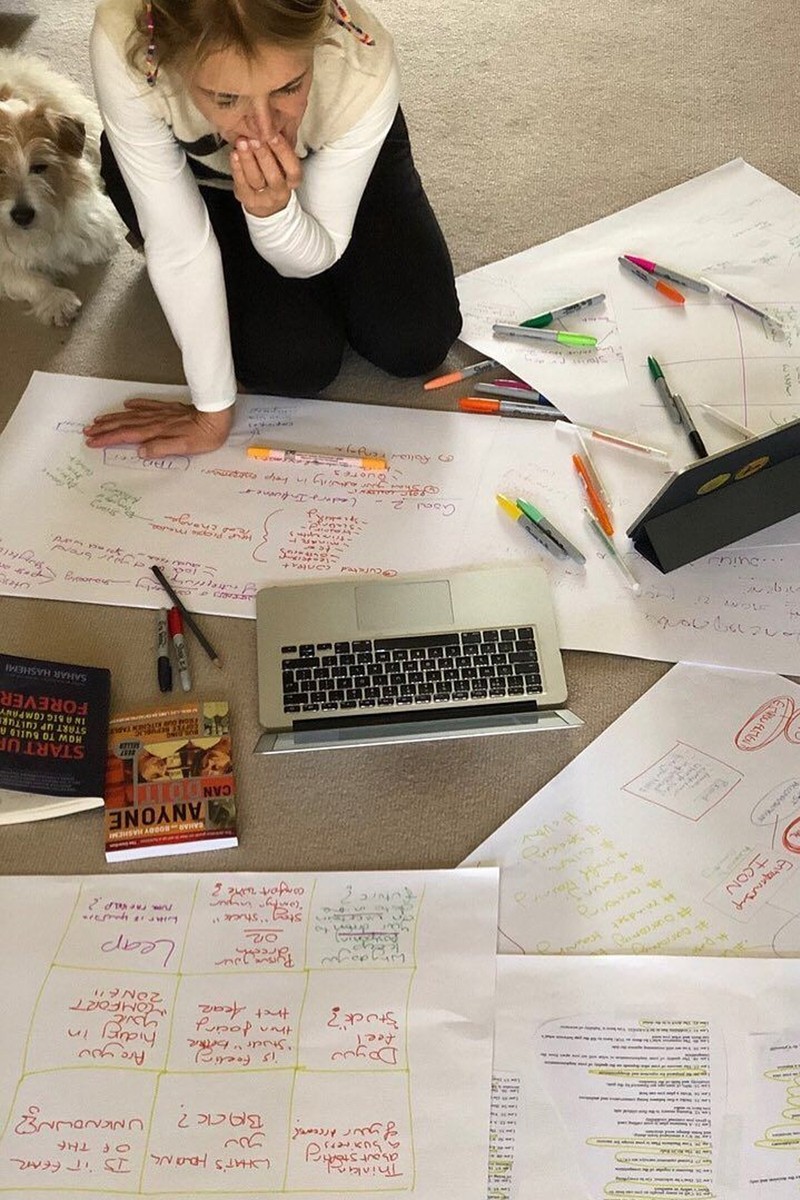
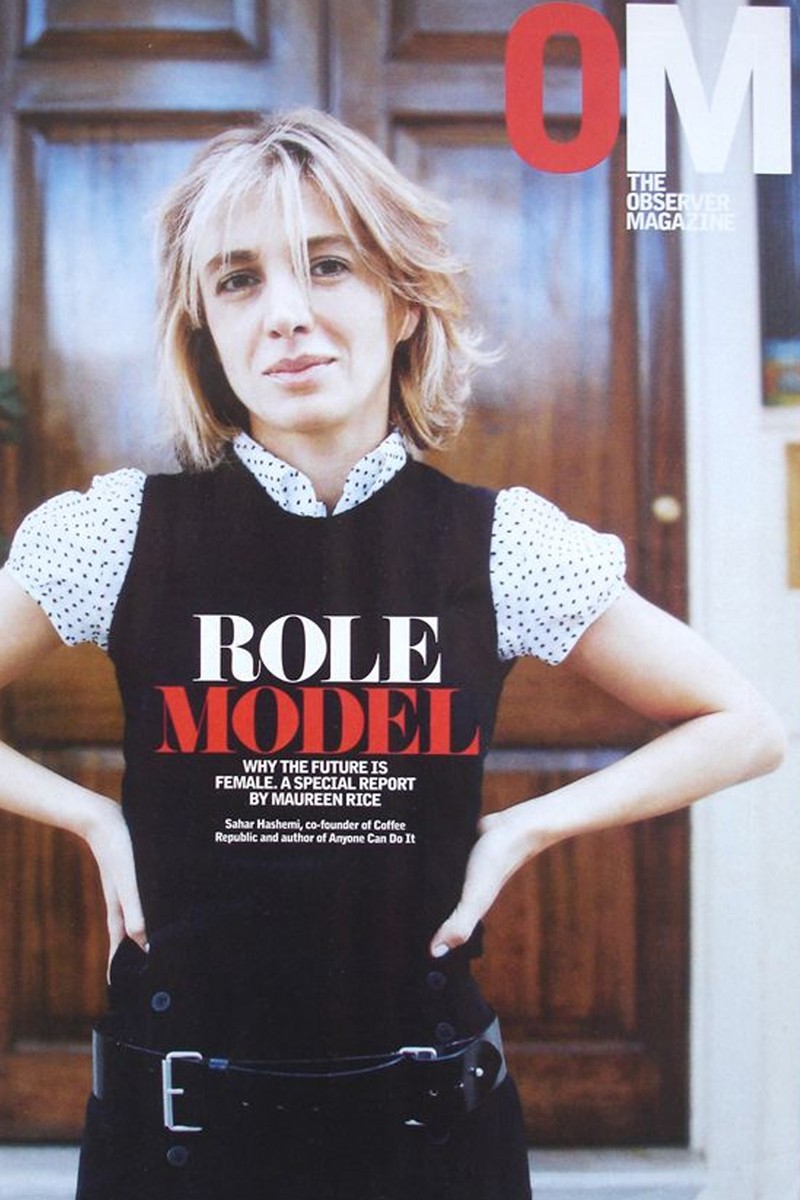
On Trust…
One of the most important lessons I’ve learnt in business is about trust. Looking back, I wish we hadn’t exited Coffee Republic when we did. The better choice would have been to bring someone in who knew us, trusted us and could be a good CEO. We would still have had board positions or been present as founders to help steer the vision, working closely with someone we also trusted to make that vision a reality. The same thing sort of happened with Skinny Candy. That business was barely two years old when I sold it to a big confectionary company. I really believed they would take it on, nurture it and grow it into something I couldn’t by myself. But they didn’t – they sort of put it in a drawer and forgot about it, which was a shame.
On Female Empowerment…
During the lockdown, I was on Twitter and saw a tweet from Jacqueline de Rojas, the president of techUK, that said: “Not everyone can invest in women, not everyone can mentor women, but we can all buy from women.” I thought it was really powerful and it sparked the idea for the Buy Women Built movement.
Around the same time, The Alison Rose Review of Female Entrepreneurship had pointed out that entrepreneurship was tracking 30% behind the US, Canada and the Netherlands and this deficit had cost the UK £200 billion. It was clear that, to close the gap, we needed to do more to support women in business. I’ve always believed women are a great untapped resource – especially those who have perhaps left their full-time job and want to pour their time and effort into starting a new business. But confidence is a huge barrier. I knew there was something I could do to empower these women and give younger women better role models in the world of business. At the end of the day, I’d love there to be a day when Buy Women Built isn’t needed – that the world sees these women for the business leaders they are and the term ‘female entrepreneurship’ becomes old hat. Right now, it’s still not a level playing field, but that’s the goal.
On Paying It Forward…
My book Anyone Can Do It is what led to my work with The Prince’s Trust. I’m very aware that I had a supportive family, a great education and that probably gave me a hefty leg up to be able to start my own business. But many people aren’t even at level zero – so it’s no wonder they don’t have the means or confidence to bring their idea to life. That’s where organisations like TPT plays such a massive role and can make an enormous difference to people’s lives. At this stage in my life, I’m more interested in paying it forward, especially where women are concerned.
/https%3A%2F%2Fsw18.sheerluxe.com%2Fsites%2Fsheerluxe%2Ffiles%2Farticles%2F2022%2F12%2Fsahar-image-2.jpg?itok=_uhqmToo)
On Family…
Working with my brother was easy – but we were lucky to have a joint idea and vision, as well as a healthy relationship on which to build the business. It’s often said that behind every great man is an incredible woman, but I see no reason to believe the same isn’t true in reverse. I also didn’t get married until I was 41 – not because I was too busy (if Helena Morrissey can do what she does with a husband and nine children, it proves there’s no such thing), but simply because I hadn’t met the right person. It really showed me that we’re all on different journeys and that it’s sometimes worth thinking with your heart instead of your head. Businesswomen are often quite controlling – but love isn’t something you can control. That’s been a big lesson for me.
On Ageing…
I’m still as vain today as I’ve ever been. I love fashion, I love beauty, I’m always interested in the latest health and wellness trends and starting new diets. For me, it’s about constant reinvention and improvement to be the best version of yourself. I don’t see ageing as a limitation – I’m a curious person and in many ways, I’m quite child-like at heart. I also don’t see any point in comparing myself to others anymore. It’s such a thief of happiness. Everyone has their own destiny and their own strengths – and everyone’s goal should be working out what that is for them, no matter what people around them are doing. Discovery is one of life’s great joys and comparison is a total waste of time. If only I could tell my 20-year-old self that.
Visit BuyWomenBuilt.com
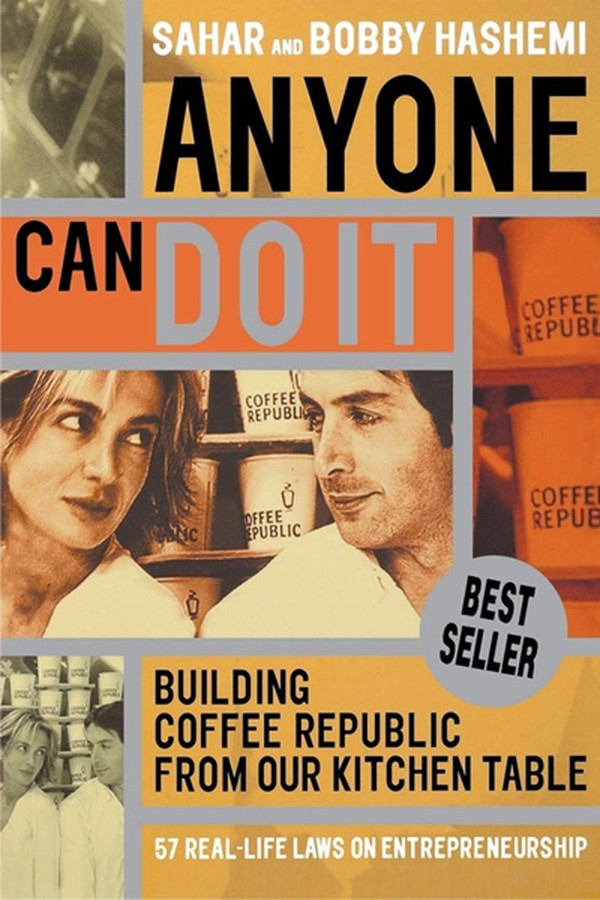
Sahar & Bobby Hashemi
DISCLAIMER: We endeavour to always credit the correct original source of every image we use. If you think a credit may be incorrect, please contact us at info@sheerluxe.com.

